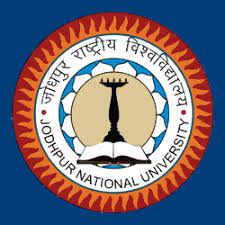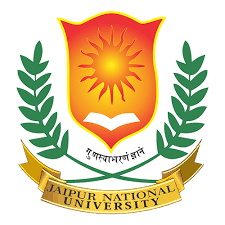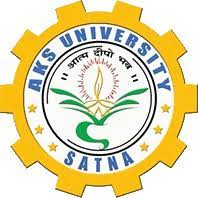If you have an interest in fisheries and aquaculture, then a Ph.D. in aquatic animal health management could be an ideal career choice for you. This Ph.D. program is designed to give you a thorough grounding in the field and prepare you to work with farmed aquatic animals. In addition to the research you will complete, you will also get to apply your knowledge to improve the health and welfare of fisheries and aquaculture.
The National Centre for Aquatic Animal Health (NCAA) is one of the universities that offer a Ph.D. program in aquatic animal health management. You can explore the various courses and programs offered by the Centre by reading the various write-ups and visiting their web pages. You should also contact the guides to inquire about the available studentship. The application form should be filled out and submitted to the Centre's office. The fee for the program is paid through a demand draft.
Ph.D. in Aquatic Animal Health Management Eligibility
Candidates who want to take admission in Ph.D. must have a post-graduate degree in Aquatic Animal Health Management and its relevant discipline with at least 55% marks from a recognized university and must have passed the national level entrance examination or university level entrance examination. National level entrance exams like UGC NET / UGC CSIR NET / GATE / SLET or University entrance exams consist of written tests and personal interviews.
Benefits of a Ph.D. in Aquatic Animal Health Management
There are many benefits of a Ph.D. in aquatic animal health management. It prepares you for leadership roles in the aquaculture industry. You'll learn about the latest techniques and best practices in aquaculture and how to use them to solve problems. Your research will help improve the overall health of aquatic animals. And your career prospects will be bright, as you'll be able to influence the way aquaculture is regulated.
The research work in this field is based on scientific principles and is bidirectional. This method provides structured insights into disease processes and enables better control strategies. However, research results are often limited because they don't have host specificity. Still, the knowledge gained from an aquatic animal health management Ph.D. will be invaluable in improving health management and disease control. There are a number of benefits to an aquaculture Ph.D.
A Ph.D. in aquatic animal health management will help you develop the necessary tools to manage diseases that affect aquaculture and agriculture. It will help you become an expert in aquaculture and be an important part of the global scientific community. This field is highly specialized and requires specialists to understand the science and technology behind aquatic animals. You can become a member of international organizations like the American Fisheries Society, the European Association of Fish Pathologists, and the Asian Fisheries Society.
The Career and Job Opportunities of a Ph.D. in Aquatic Animal Health Management
After completing the program, you can pursue a career in aquatic animal health management. This program involves combining class-based learning and field visits to develop an understanding of aquaculture and fisheries. Graduates can also go on to work in government fisheries departments or seafood farms. The Ph.D. in aquatic animal health management also opens up many other career opportunities. You can use your skills to help others and contribute to your local community.
The degree program is conducted by experts in the field of aquatic animals. Professors with experience in aquatic animal health management include Dr. Wenlong Cai, DVM, Ph.D., CertAqV, and P. Gopal Reddy. This Ph.D. is ideal for those interested in advancing their knowledge and skills in this field. You can join a research team that conducts fish disease diagnostics and necropsies.
If you're interested in pursuing a career in aquatic animal health management, you'll need to apply to several different schools. Some of the best universities have combined programs in different fields. A Ph.D. in aquatic animal health management will help you expand your knowledge. For example, the program at Tuskegee University will help you learn about the complexities of managing fish populations.
The Future Scope of a Ph.D. in Aquatic Animal Health Administration
The future scope of a Ph.D. in Aquatic Animal Health Administration lies in the use of epidemiological approaches to protect the lives and health of aquatic animals. Anthropogenic pressures, such as climate change, limited water resources, and the increasing use of aquaculture, will increase the need for such scientists. The field of fish disease is a growing field that is in dire need of more trained pathologists.
The Department of Aquatic Animal Health Management was established by bifurcating courses from the Department of Aquaculture. From 2008 to 2009, it offered UG courses and later, a Master's program. It has adequate infrastructure and student amenities. The Ph.D. program will be launched in 2018-19. The Ph.D. program will focus on disease prevention and management in the aquaculture industry.
The current Department of Aquatic Animal Health Management has a strong track record in delivering quality education. The staff of the department has over 18 years of experience in teaching and disease diagnosis. They have worked in a variety of capacities in the College of Agriculture. Their recent activities have included the development of the aquaculture department. Their doctoral research topic is "Monogenean fauna variation in carangid fishes".
Ph.D. Research Program duration
The Ph.D. in Aquatic Animal Health Management course is a minimum of 3 years and a maximum of 5 min duration. This depends on the university offering the course.
Fees for research program Aquatic Animal Health Management
The average fee for Ph.D. in Aquatic Animal Health Management degree is between INR 50000 and INR 500000.
 5 Years
5 Years
 PhD
PhD
 Research
Research


































 back
back